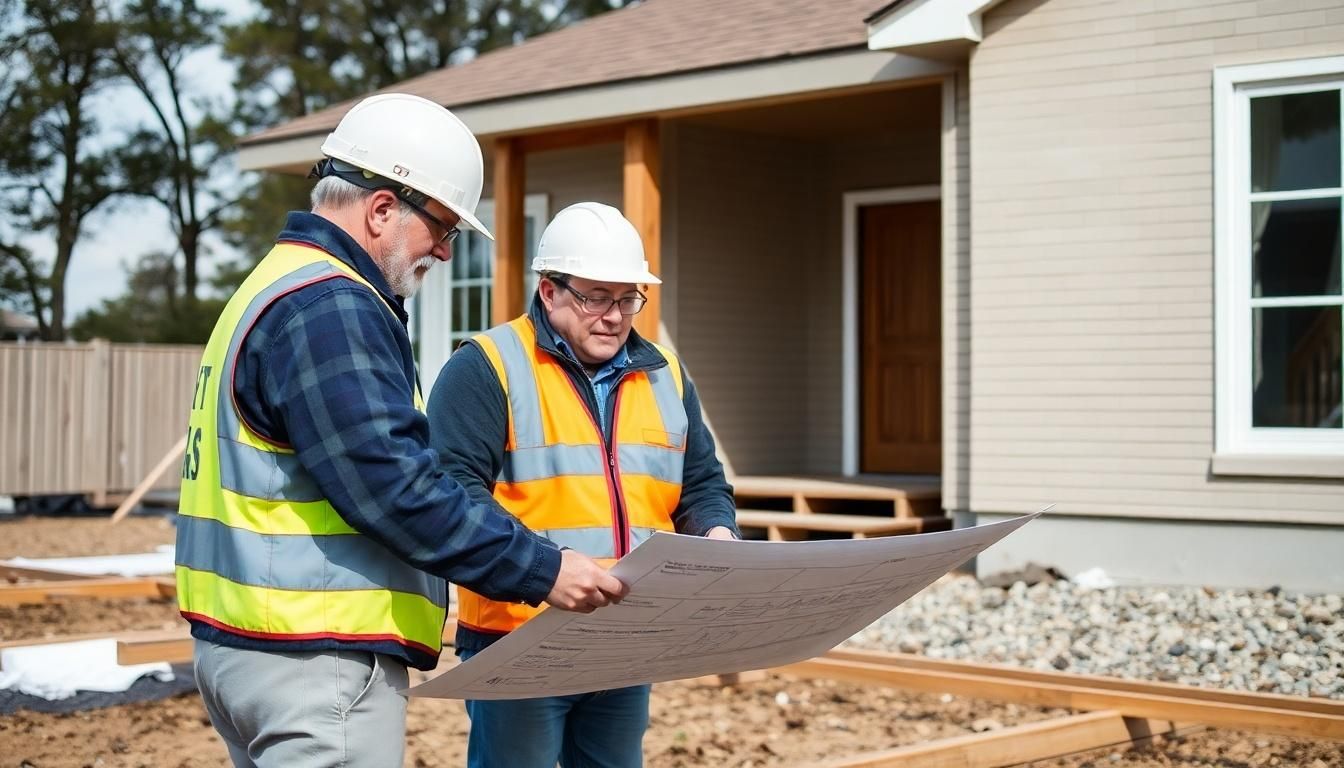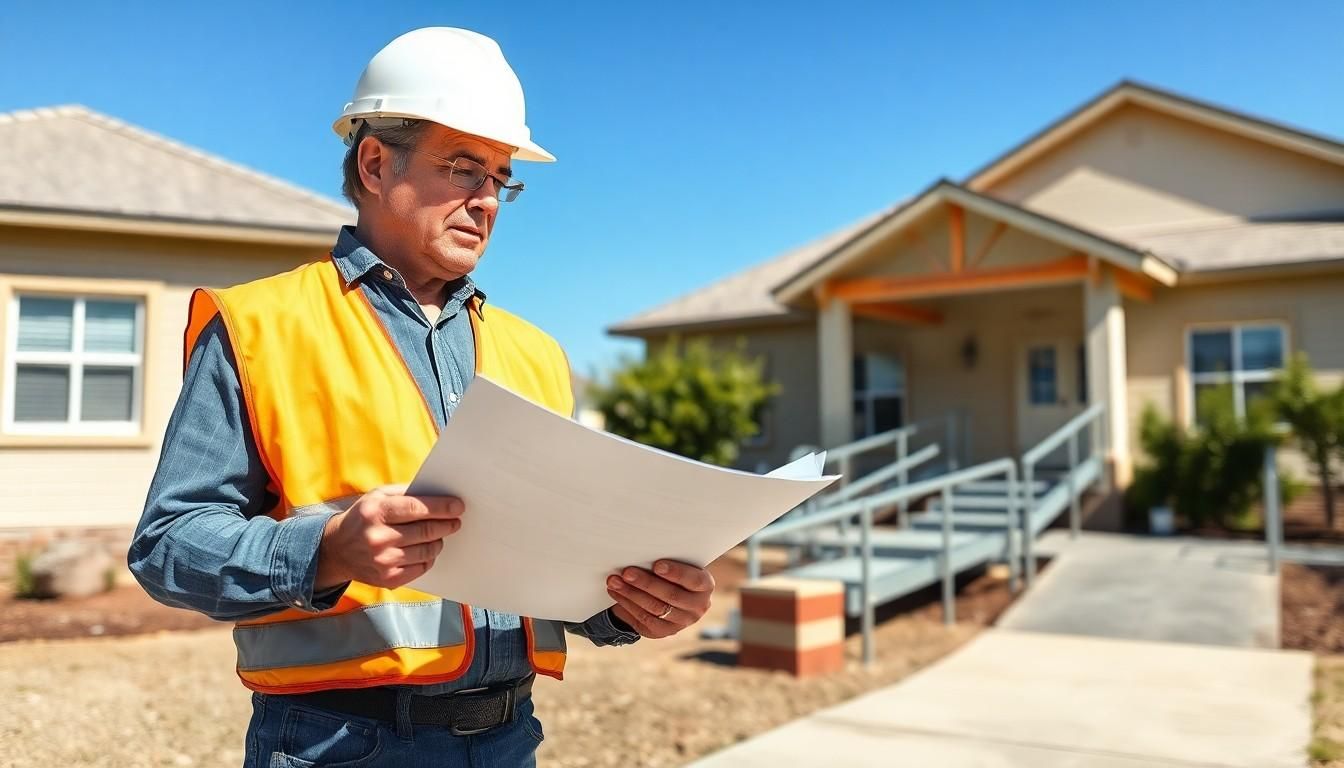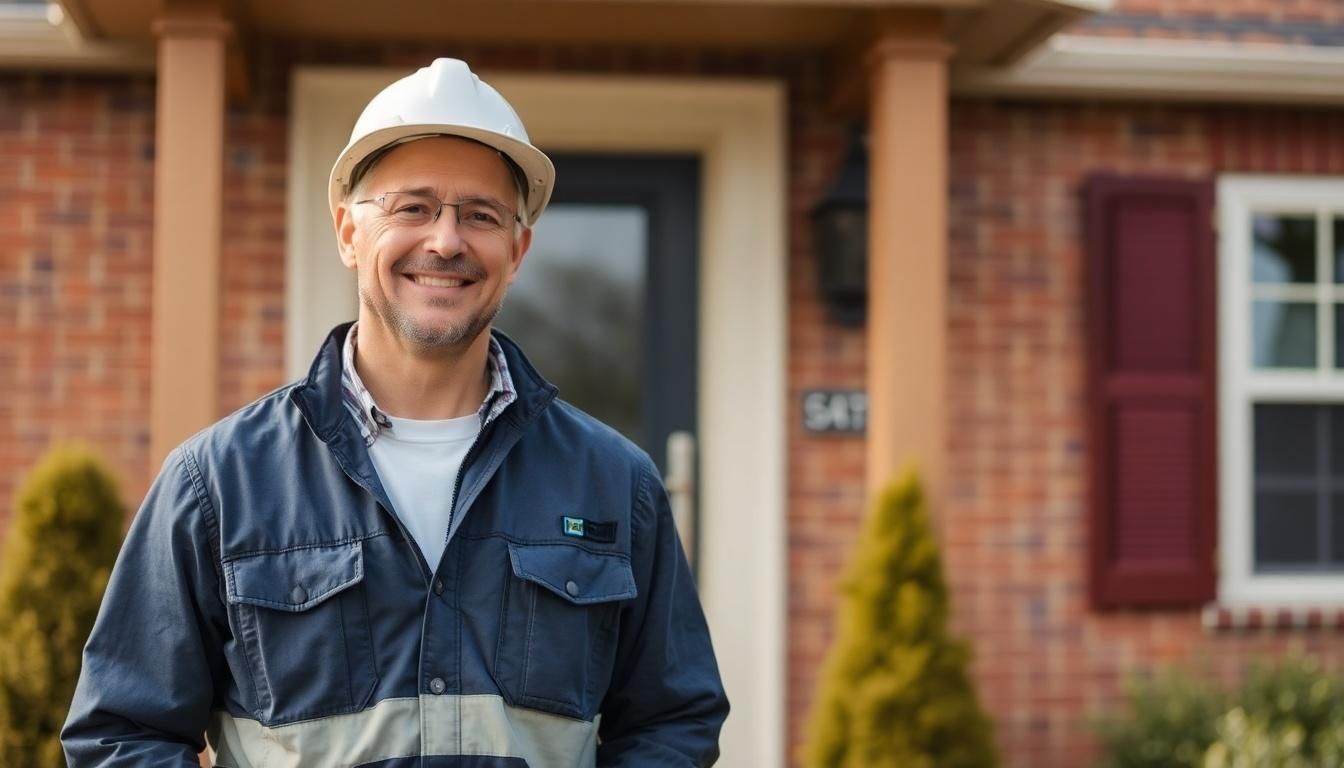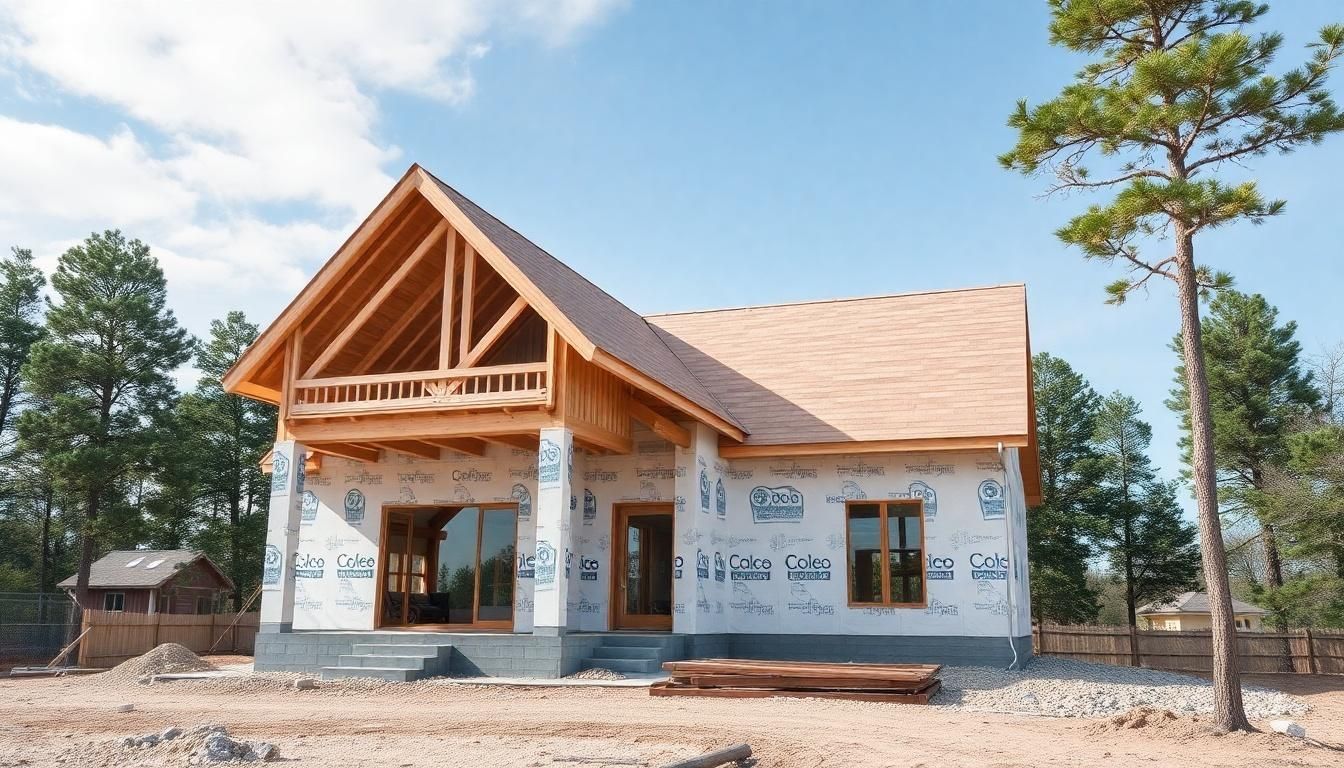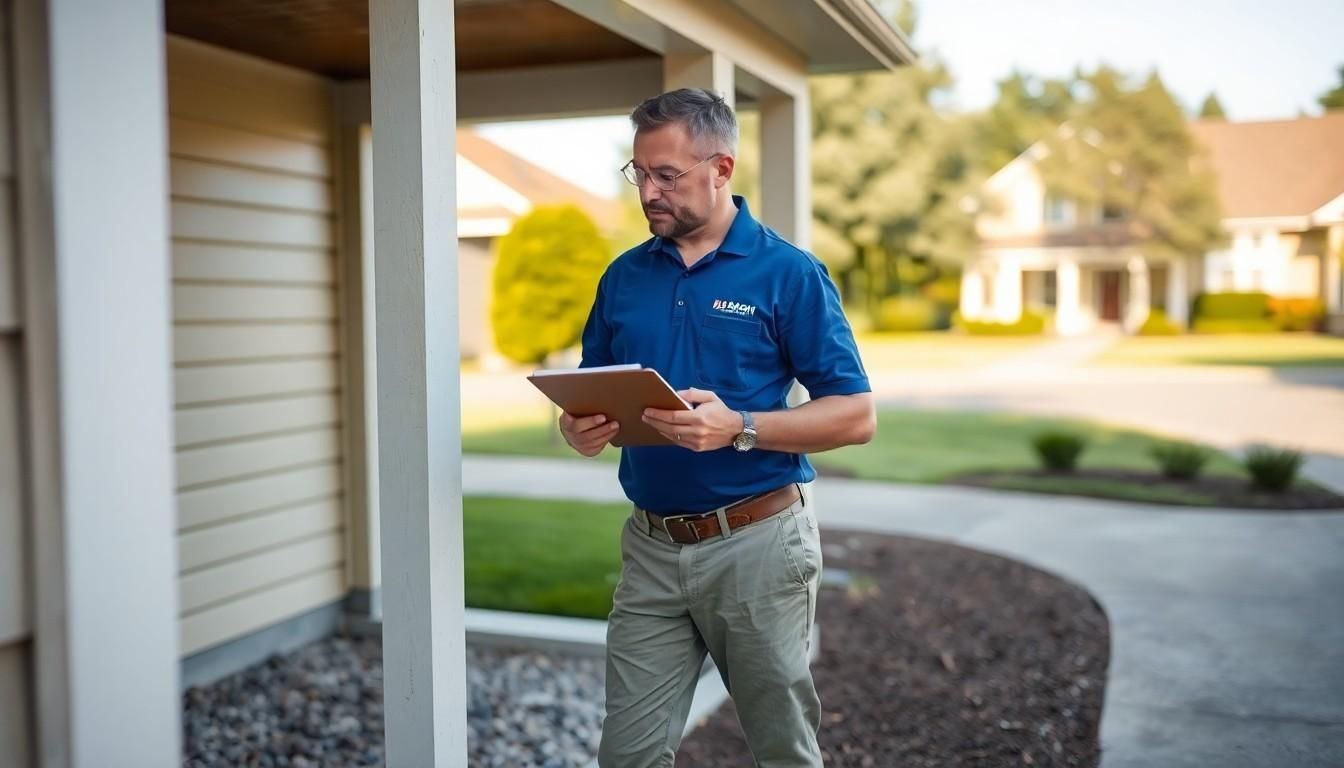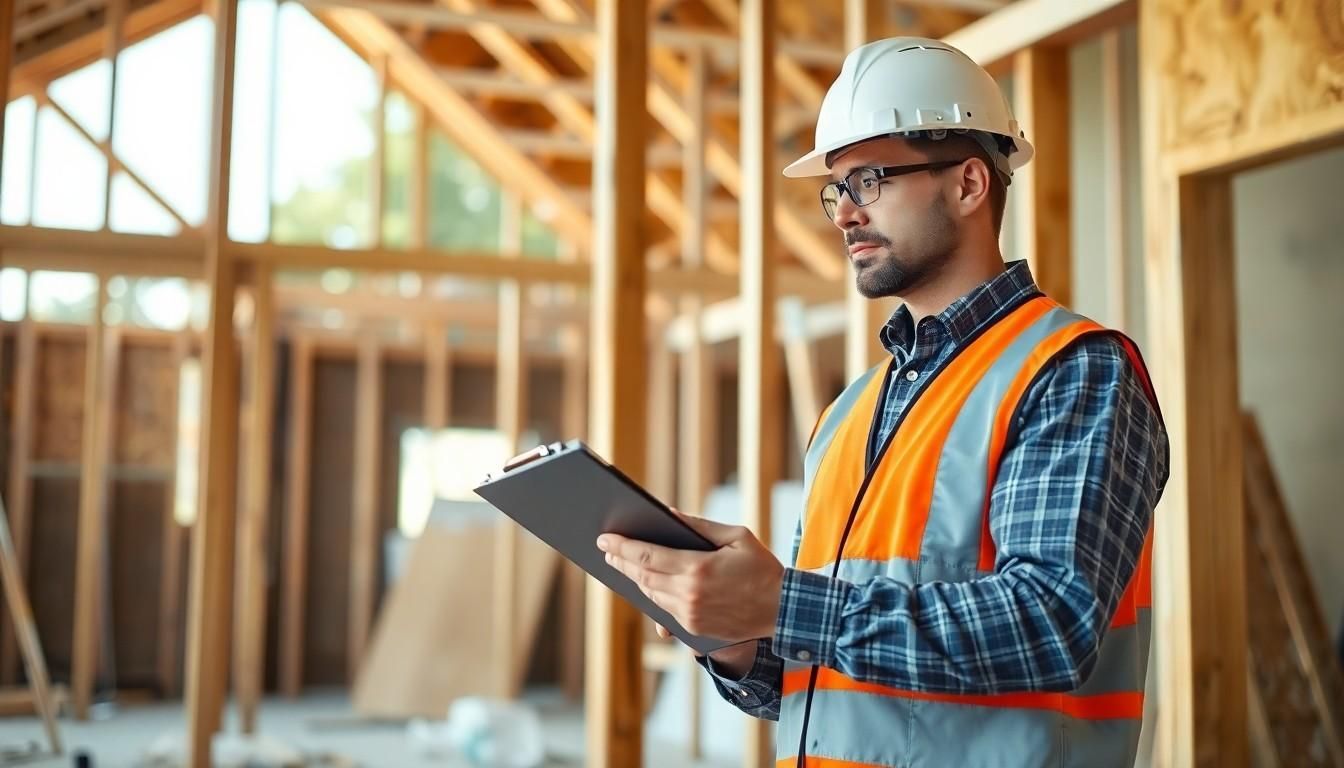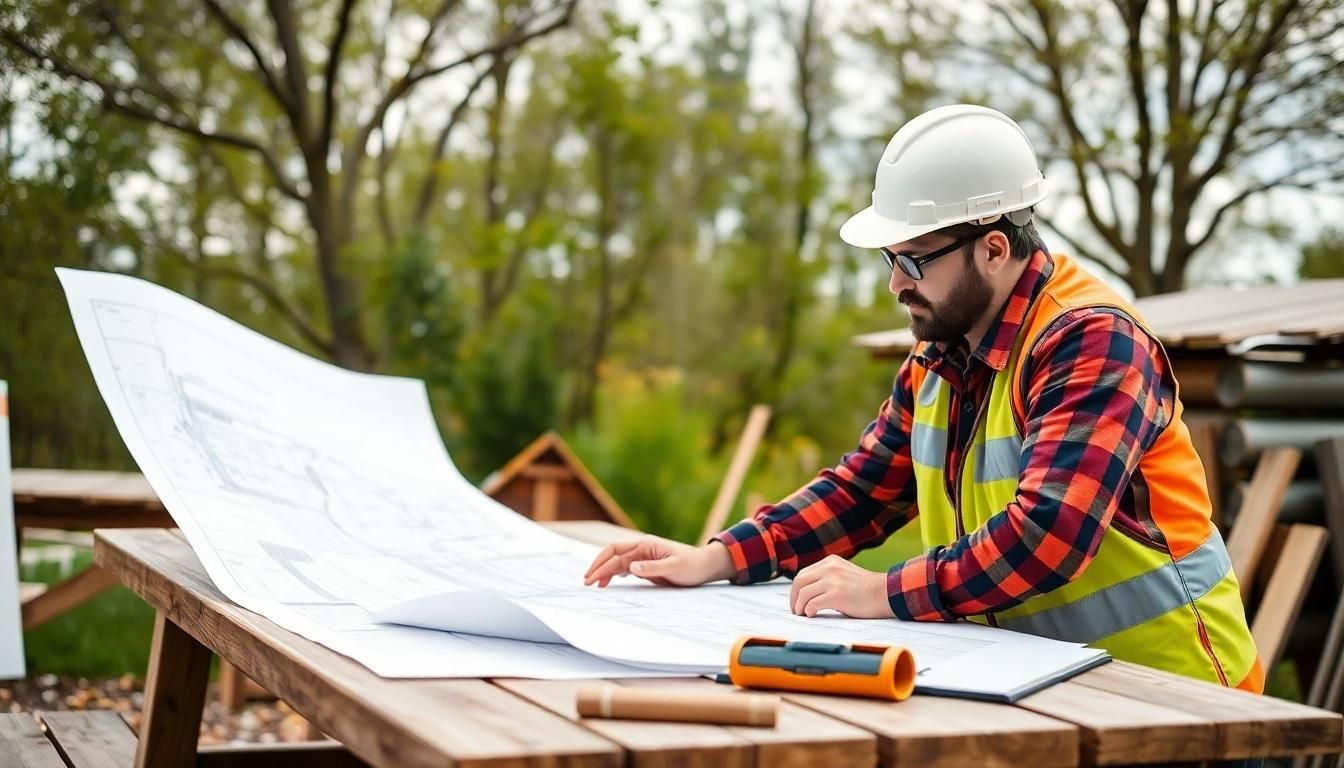A Comprehensive Guide to the Future of Home Inspections
The future of home inspections is evolving rapidly, driven by changes in the real estate market and the integration of cutting-edge technologies.
- Technological Advancements: Home inspections are becoming more precise and efficient with tools such as drones, infrared cameras, and AI-powered diagnostic software.
- Real Estate Trends: A surge in real estate transactions due to falling mortgage rates is increasing the demand for thorough and reliable inspections.
- Sustainability and Efficiency: An emphasis on energy-efficient and sustainable homes is shaping inspection standards and methodology.
- Standardization: Expect more uniformity in inspection protocols to ensure consistent, high-quality assessments.
Home inspections play a crucial role in the real estate process. For buyers, getting a thorough inspection can reveal hidden problems and give confidence in their purchase. For sellers, it helps in rectifying issues upfront to smooth out transactions. The industry is moving beyond traditional methods, by embracing technology to offer faster and more accurate evaluations. The use of thermal imaging cameras, drones for roof inspections, and cloud-based software makes the process more reliable.
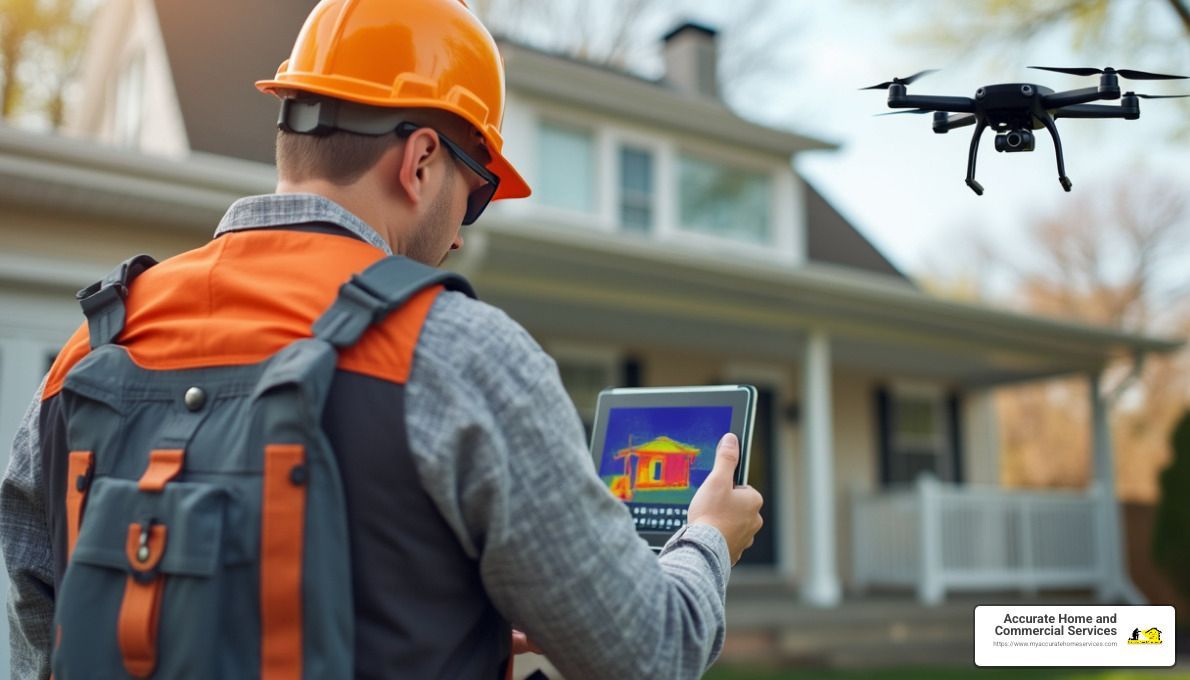
As the real estate market dynamics shift, the need for detailed and standardized home inspections will only grow. Whether you're buying, selling, or curious about the future, understanding these trends will keep you ahead in making informed property decisions.
Emerging Technologies in Home Inspections
In recent years, the home inspection industry has embraced emerging technologies to make inspections more accurate, efficient, and safer. Let's explore some of these innovations that are changing the way inspections are conducted.
Drones
Drones are revolutionizing roof inspections. They provide a safer way to examine hard-to-reach areas without ladders or scaffolding. Equipped with high-resolution cameras, drones capture detailed images and videos, allowing inspectors to identify potential issues from the ground. This not only improves safety but also increases the accuracy of inspections.
Thermal Imaging
Thermal imaging, also known as infrared thermography, is another game-changer. It detects temperature variations in a home, revealing hidden problems like water leaks, electrical issues, and insulation gaps. This technology allows inspectors to uncover issues that are invisible to the naked eye, providing a more comprehensive assessment of the property.
3D Modeling
3D inspection software creates interactive models of homes. These models help inspectors generate detailed reports with visual aids, making it easier for clients to understand the condition of their property. By pinpointing specific areas of concern, 3D modeling improves communication between inspectors and clients.
Mobile Apps and Digital Tools
Mobile apps and digital tools streamline the inspection process. Inspectors can collect data, take notes, and generate reports on-site. With just a tap, they can share findings and updates with clients in real-time. This not only speeds up the process but also ensures that clients receive timely information.
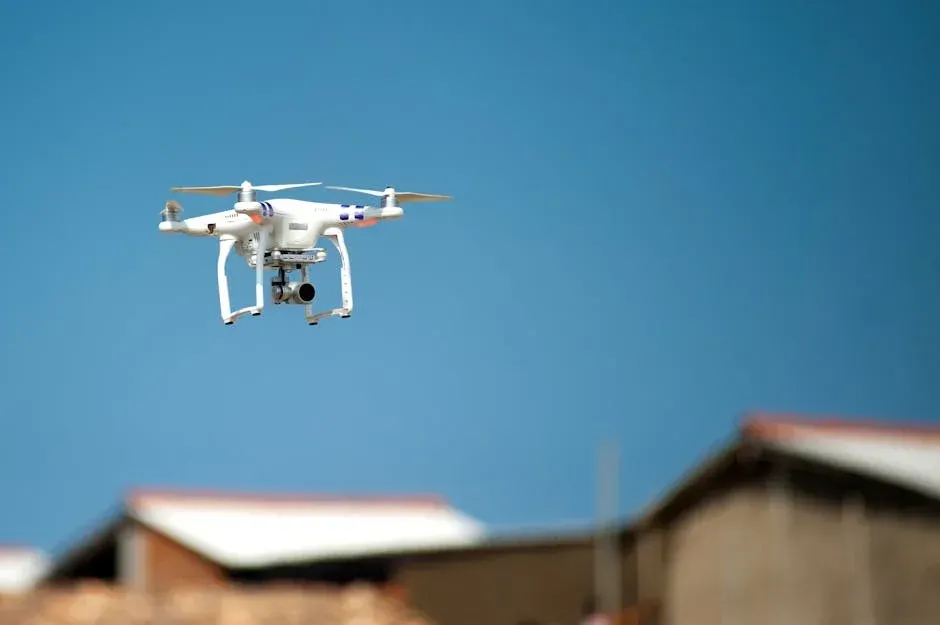
The future of home inspections is bright with these technologies at the forefront. They not only improve the accuracy and efficiency of inspections but also improve the overall experience for homeowners, buyers, and real estate professionals alike. As these technologies continue to evolve, the home inspection industry will undoubtedly see even more innovations in the years to come.
The Future of Home Inspections
The home inspection industry is on the cusp of significant change, driven by a mix of increasing demand for inspectors and evolving housing market dynamics. Let's explore what the future holds for this vital sector.
Demand for Inspectors
With more homebuyers entering the market, the need for skilled home inspectors is rising. In 2025, the demand for home inspections is expected to grow significantly, fueled by a thriving real estate market. This trend is particularly evident in the United States, which remains the largest market for home inspections globally. As the housing market expands, so does the opportunity for inspectors to grow their careers and businesses.
Interest Rate Impact
Interest rates play a crucial role in the housing market. As mortgage rates start to fall, more people are likely to consider buying homes. This decrease in rates is expected to revitalize the housing market, leading to a surge in property transactions and, consequently, a higher demand for home inspections. Lower interest rates make homeownership more affordable, encouraging people to invest in properties and seek thorough inspections before closing deals.
Housing Market Trends
The real estate market is closely linked to home inspection trends. As the market grows, so does the need for comprehensive inspections to ensure properties are safe and sound investments. In 2024 and beyond, we can expect to see an increased focus on green home inspections. With more buyers interested in environmentally friendly homes, inspectors will need to evaluate properties for energy efficiency and sustainability.
Additionally, pre-listing inspections are gaining popularity. Sellers are opting for these inspections to identify and address potential issues before listing their homes. This proactive approach helps streamline transactions and provides buyers with confidence in their purchase.
As the home inspection industry evolves, staying informed about these trends is crucial. Inspectors who adapt to the changing landscape will be well-positioned to thrive in the future. The integration of technology and a focus on emerging market needs will ensure that home inspections remain a vital part of the real estate process.
Key Technological Advancements
In home inspections, technology is making things faster, safer, and more accurate. Let's explore some of the key advancements that are changing the industry.
Drones for Roof Inspections
Drones are changing the way inspectors look at roofs. Instead of climbing ladders or scaffolding, inspectors can now use drones to capture high-resolution images and videos of roofs. This method is not only safer but also provides a comprehensive view of hard-to-reach areas. Drones help inspectors spot potential issues like missing shingles or damaged flashing without risking injury.
Infrared Thermography
Infrared thermography is a game-changer for detecting hidden problems. This technology uses thermal imaging to find temperature differences in a home. Inspectors can identify water leaks, insulation gaps, and even electrical issues that are invisible to the naked eye. Detecting these issues early can save homeowners from costly repairs down the line.
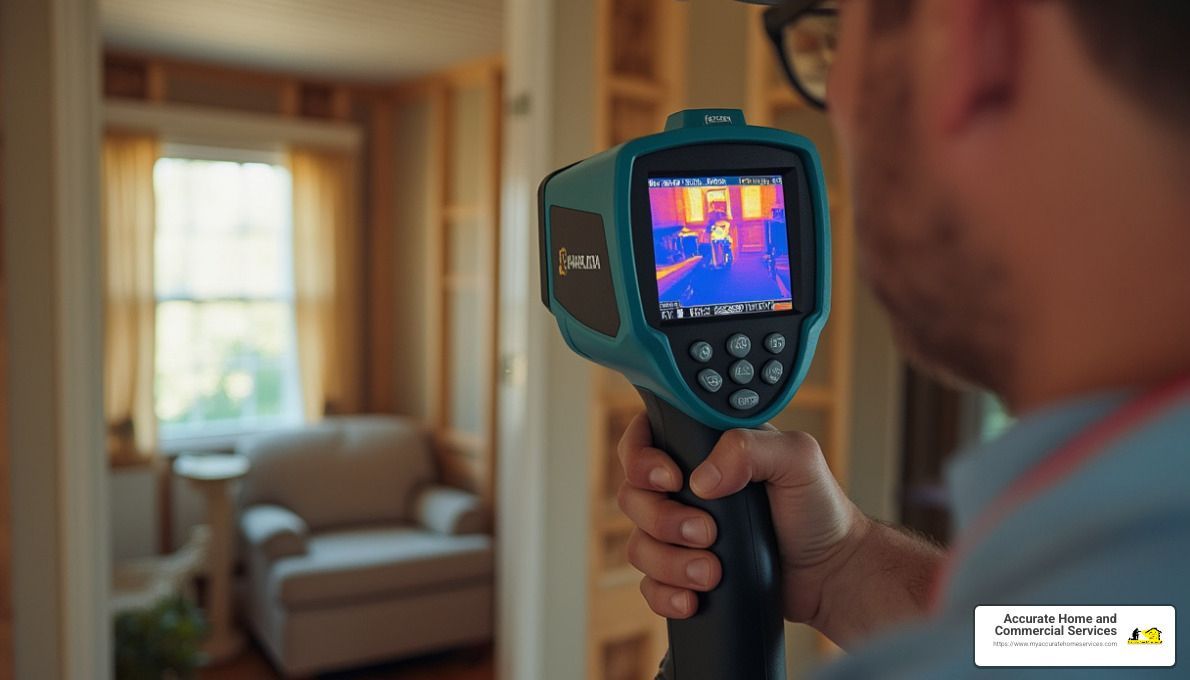
3D Inspection Software
3D inspection software allows inspectors to create detailed models of homes. These interactive models give clients a clear understanding of the property's condition. With visual aids, clients can easily pinpoint specific areas of concern. This technology helps make inspection reports more comprehensive and user-friendly.
Mobile Apps and Digital Tools
Mobile apps and digital tools streamline the inspection process. Inspectors can now collect data, take notes, and generate reports right from their smartphones or tablets. This means faster turnaround times and real-time updates for clients. With just a few taps, inspectors can share their findings, making the process more efficient and transparent.
These technological advancements are making home inspections more thorough and accurate. By embracing these tools, inspectors can provide better service and keep up with the demands of the modern real estate market.
Benefits and Challenges of New Technologies
The integration of new technologies in home inspections is changing the industry in significant ways. Let's explore the benefits and challenges that come with these advancements.
Improved Efficiency
New technologies are speeding up the inspection process. Mobile apps and digital tools allow inspectors to document findings and generate reports on the spot. This not only saves time but also ensures clients receive information promptly. Faster inspections mean inspectors can handle more appointments, meeting the rising demand in the housing market.
Improved Accuracy
Tools like infrared thermography and 3D inspection software are enhancing the accuracy of inspections. Thermal imaging reveals hidden issues such as water leaks and insulation gaps that might be missed by the naked eye. 3D models provide a detailed view of the property, making reports clearer and more precise. This accuracy is crucial in helping clients make informed decisions.
Increased Safety
Safety is paramount in home inspections. With the advent of drones, inspectors can now safely examine roofs and other high-risk areas without the need to climb ladders or steer precarious spots. Drones offer a comprehensive aerial perspective, significantly reducing the risk of accidents.
This technology not only improves safety for inspectors but also ensures a thorough evaluation, benefiting homeowners with more accurate inspection results.
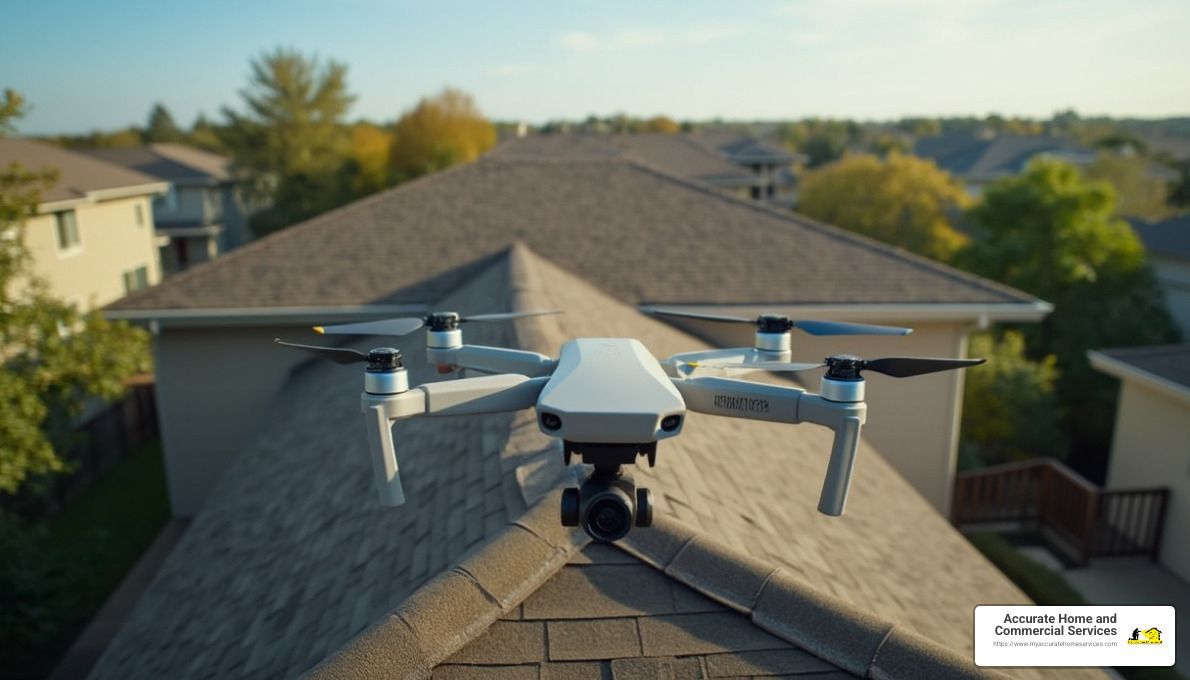
Training and Adaptation
While the benefits are clear, adapting to these new technologies comes with its own set of challenges. Inspectors need to invest time and resources into training and acquiring new equipment. Learning to use these tools effectively is essential to reap their full benefits. However, the initial investment can be a hurdle for some professionals.
The future of home inspections is bright, with technology leading the way. By embracing these advancements, inspectors can offer more comprehensive and efficient services, ensuring safety and satisfaction for all involved.
Next, we'll explore some frequently asked questions about home inspections and what the future holds for this evolving industry.
Frequently Asked Questions about Home Inspections
The Future of Home Inspections
The future of home inspections is closely tied to the dynamics of the housing market and interest rates. As mortgage rates have fallen below 7%, the housing market is experiencing a surge. This resurgence is expected to increase the demand for home inspections as more people buy and sell properties. Lower interest rates make it easier for buyers to secure loans, encouraging them to enter the market. This uptick in real estate transactions means home inspectors will likely see a busier schedule in 2024.
Are Home Inspectors in Demand in 2025?
Yes, home inspectors are in demand, and this trend is expected to continue into 2025. With the housing market picking up pace, the need for qualified home inspectors is on the rise. However, this increased demand presents some career challenges. Many inspectors face a high turnover rate, with 26% leaving the profession within 1-2 years. This could lead to a shortage of experienced inspectors, making it a stable and potentially lucrative career choice for those willing to invest in training and technology.
Biggest Red Flags in a Home Inspection
Understanding the biggest red flags during a home inspection is crucial for both buyers and inspectors. Common issues include structural damage, electrical hazards, plumbing problems, roof issues, and signs of pest infestation. Identifying these problems early can save buyers from costly repairs down the line. However, the increasing demand for inspections could lead to an inspector shortage, making it essential for buyers to schedule inspections promptly to avoid delays in their home-buying process.
As the home inspection industry evolves, staying informed and prepared can help both inspectors and clients steer the challenges and opportunities that lie ahead.
Conclusion
Accurate Home and Commercial Services stands out in the Greater Houston area with its commitment to delivering comprehensive inspections and ensuring customer satisfaction. Their team is known for its extensive experience and meticulous attention to detail, providing peace of mind to homeowners and buyers alike.
With the housing market on the rise due to favorable interest rates, the demand for reliable home inspections is stronger than ever. Accurate Home and Commercial Services is well-positioned to meet this demand. They offer a full range of inspection services, from standard home inspections to specialized pest control evaluations, ensuring properties are safe and sound.
Their dedication to quality service and customer satisfaction is evident from the glowing reviews they receive. Clients appreciate their swift responses, thorough reports, and the extra mile they go to address concerns. As the home inspection industry continues to evolve with new technologies and market trends, Accurate Home and Commercial Services remains a trusted partner in helping clients make informed decisions about their properties.
For those in the Greater Houston area looking for dependable inspections, Accurate Home and Commercial Services is a name you can trust. Their expertise and customer-focused approach ensure that every inspection is thorough, accurate, and custom to meet your needs.
